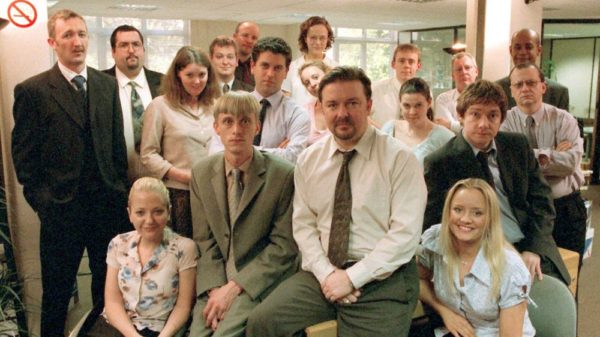It was 16 years ago this month that The Office debuted on UK screens, and it remains to this day a high watermark of British comedy. It’s perhaps the only 21st Century sitcom that can rival the stalwart classics of Blackadder and Fawlty Towers et al in terms of its lasting impact on UK popular culture.
With just 12 episodes and 2 Christmas specials, Ricky Gervais and Stephen Merchant’s show adopted the tried and tested policy that less is more and it’s all the better for it, with every second an absolute joy to behold.
As we close in on two decades since its inception, The Office still feels as fresh and relevant as ever and its impact on the British Sitcom cannot be understated.
Format
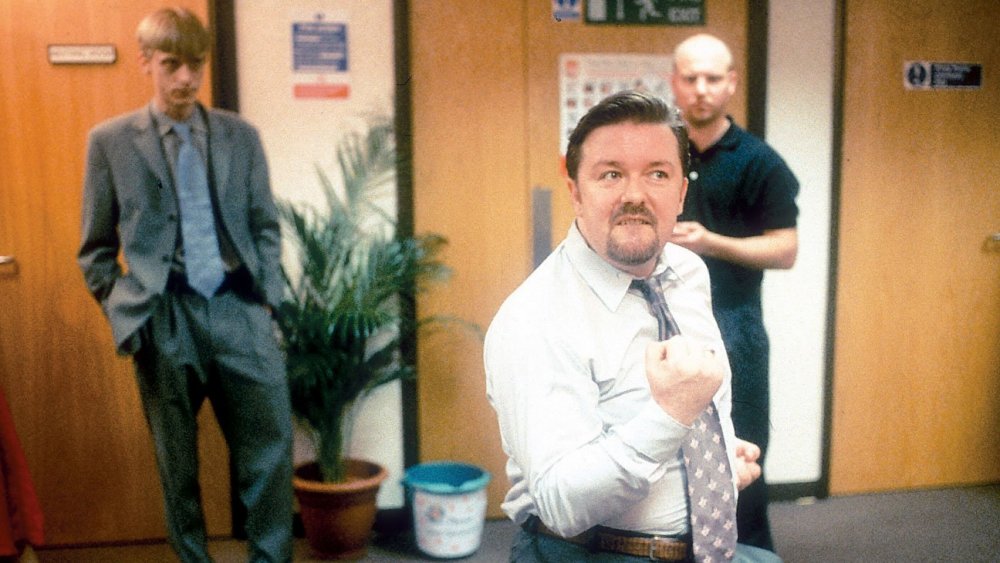
Perhaps the most obvious sitcom shift that The Office delivered was in its perfection of an entirely new sitcom format. The fly-on-the-wall, “mockumentary” style was something unique and different at the time, and while it has been mimicked and repeated many times since, it has yet to be better utilised.
Likewise, The Office’s use of “cringe” comedy also saw that particular subset experience a huge surge in popularity. Other shows began to follow its lead and embraced this deliberately awkward style. However, none can as yet offer anything to rival moments as hysterical yet difficult to watch as David Brent making Dawn cry over “stolen” post-it notes, or when he was found out ringing the speaking clock rather than Finchy.
The Office was also designed to feel genuine and more like a snapshot of real life than we were used to seeing in typical sitcoms. In some ways here it built on the foundations of The Royle Family, another show relentlessly grounded in everyday British life. However while that show was solely focused on domestic Northern working class experiences, The Office expanded its focus to include the great UK workplace and the array of characters it can house.
To heighten its realism further, and to make it seem more like the fly-on-the-wall documentary style that was so prevalent on TV at the time, out went the laughter track and fixed camera positions and in came fluid hand-held camerawork and naturalistic acting. Without The Office breaking new ground in this regard, it’s highly unlike that the likes of Peep Show, The Thick Of It and The Inbetweeners would exist today.
Characters
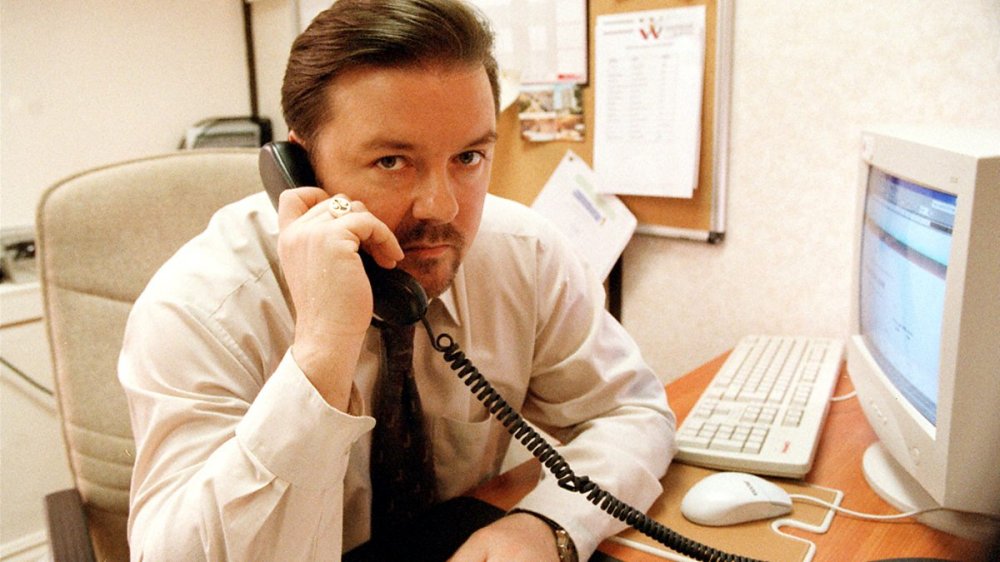
At the centre of the show lies Martin Freeman’s Tim, the ultimate TV everyman. As the chaos and drama swirls around him, you immediately relate to every world-weary eye-roll and exasperated sigh he delivers. When Tim stares blankly into the workplace abyss wearing his birthday radio-hat, there an element of frustration there which many of us will no doubt also connect with. This wasn’t an over-the-top comedy cliché, he was a rounded and relatable character, every bit as well written as those found in prestigious TV dramas.
The presentation of its characters as people who you could recognise and relate to is a further legacy of the show’s commitment to realism. Not everyone may work in an office, but most of us have nevertheless worked with someone with a touch of the Gareth’s about them before. These characters were undoubtedly exaggerated versions of any real-life counterparts that may exist, but there was still something in there you could recognise from your own experiences.
Brent
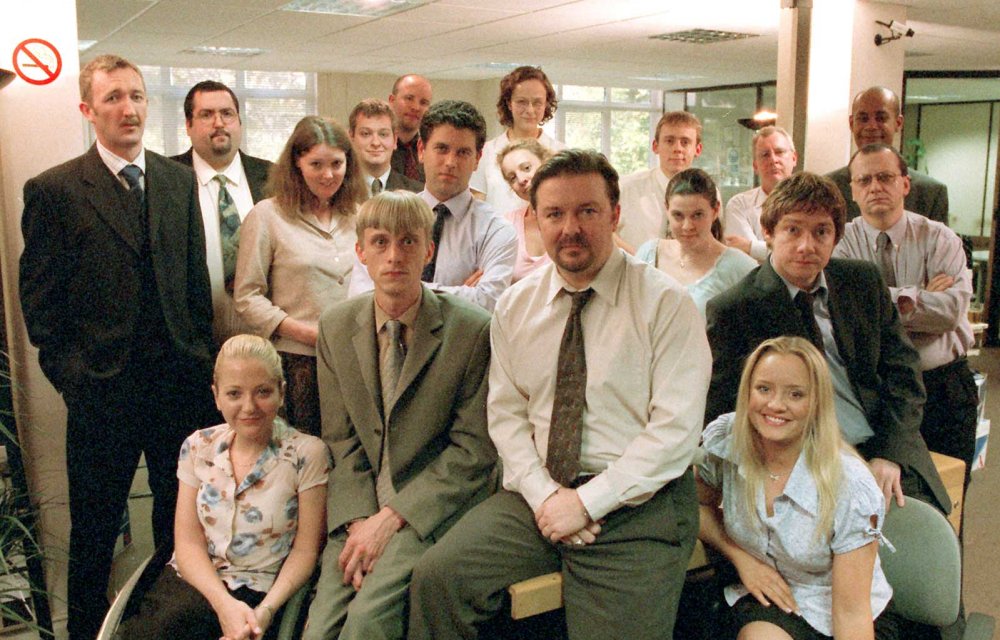
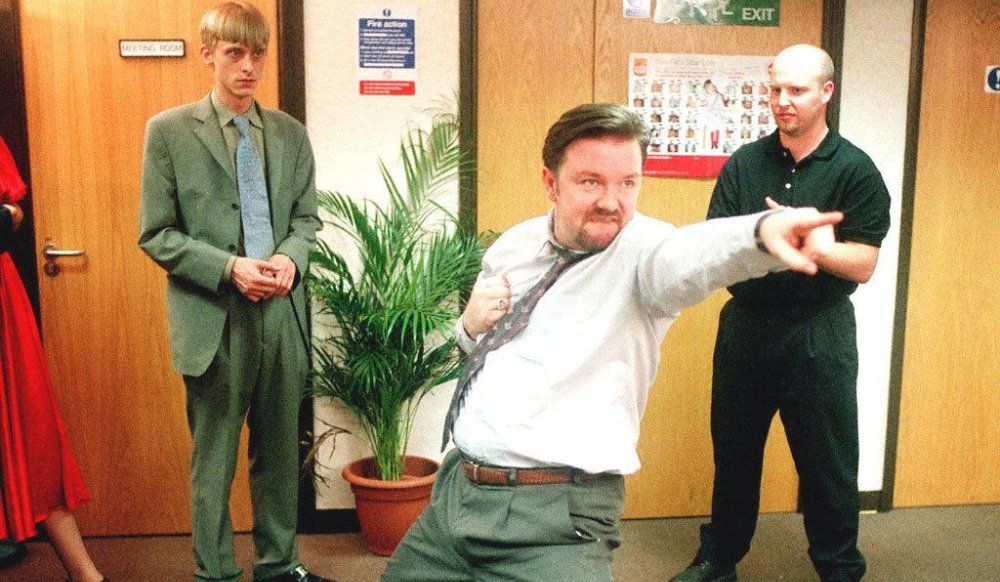
While the show did demonstrate that grounded and relatable characters could provide entertainment, it also still delivered a larger than life comedy creation for the ages. Gervais’ turn as the chilled out entertainer David Brent is an once-in-a-lifetime performance. He created a character who was infuriating, rude, selfish and utterly delusional, but is somehow still incredibly likeable.
Gervais himself has commented before on how it’s important to remember that David Brent is not a bad guy at all. He’s not mean or nasty to anyone. He’s just a bit a bit of a fool who is desperate for acceptance. Brent was a nuanced and complex character, and he proved that a show’s lead doesn’t need to be a hero all the time. Often he can be the exact opposite in fact. However, that doesn’t make his journey any less watchable.
More than comedy
The Office elevated the British sitcom to new heights by showing that even the funniest comedy could be capable of delivering so much more. This was a show that was able to be a workplace comedy filled with the quirks and tribulations that can involve, but also deliver an interesting storyline you become invested in, fully formed characters you genuinely care about and some deeply moving moments as well.
In the case of the latter, there are two moments that really stand out as showcasing how touching The Office could be. Firstly there was the heart-breaking moment that Brent realises he’s being fired and pleads for his job, his smug façade crumbling around him. The other came in the Christmas special and marked the close of one of TV’s great love stories.
Tim and Dawn were not always the focal point of the show’s storylines, but they were always its heart. Whether they were getting through another dull workday by ribbing Gareth, or offering a shoulder to cry on when there’s problems at home, you genuinely believed in their fondness for one another. Those moments in the Christmas Special where Dawn comes back to the party and they finally share a long overdue kiss is a feel-good TV moment that will never grow old.
That’s perhaps the show’s greatest legacy, the idea that a sitcom can be hilarious, blending witty writing with silly slapstick and “cringe” comedy, but at the same time be warm, relatable and absorbing. After The Office, sitcoms were expected to deliver just that little bit more…… And that’s the real quiz.

